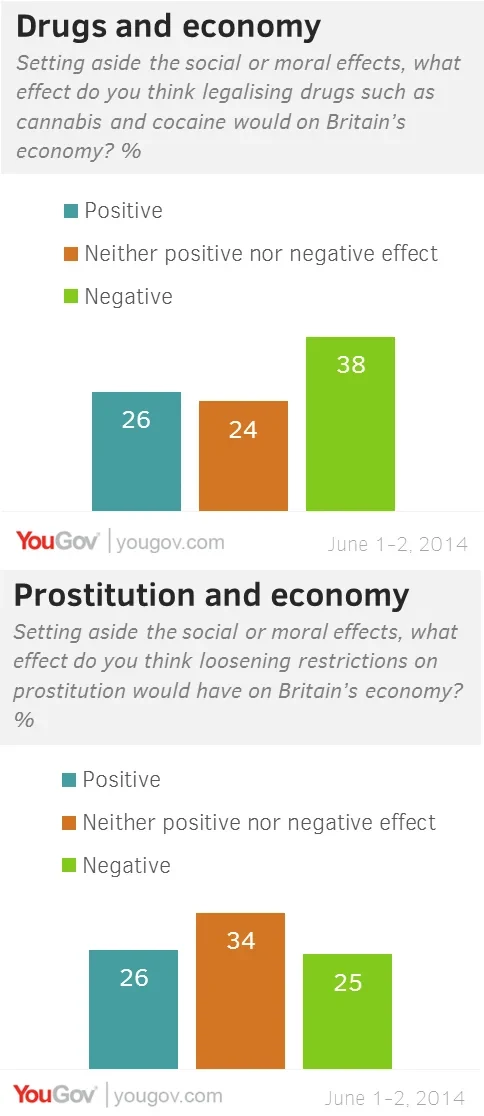Most people think that legalising drugs and loosening restrictions on prostitution would have an unnoticeable or negative effect on Britain’s economy
Britain has announced that for the first time it will include prostitution and illegal drugs in its official calculations of Gross Domestic Product. The Office for National Statistics has yet to calculate the economic effects of the industries on more recent years, but they say that prostitution added £5.3bn to GDP in 2009 while illegal drugs added £4.4bn. But while this extra GDP has no tax benefit, some argue that legalising such industries would increase revenue further: the US state of Colorado, for example, collected $2m in tax from legal cannabis in January alone.

A new YouGov survey, however, finds that British people are unpersuaded by economic arguments for drugs and prostitution.
Asked to set aside their views on the social or moral consequences, only 26% predict that legalising drugs such as cannabis and cocaine would have a positive effect on Britain’s economy. The majority say there would be no effect (24%) or the effect would be negative (38%).
Under-40s, however, tend to think the effects would be positive rather than negative, by 35-28%. Over-40s, on the other hand, tend to think the effects would be negative, by 44-20%.
The act of selling sex itself is currently legal in Britain, while acts associated with it such as soliciting it and running a brothel are not. While people are less likely to think loosening the restrictions would have a negative effect (25%) on the economy than think the same about legalising drugs, only 26% say the effects would be positive. 34% say there would be no effect on the economy.
In addition to drugs and prostitution, other new calculations – of charities and self-built houses to name a few – will add £33bn to 2009’s GDP. And there could be more to come: other illegal activities such as gambling, illegal employment and software piracy may also be included in the future.
Image: Getty







